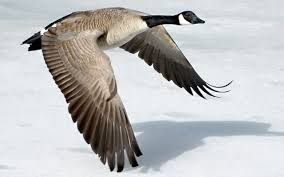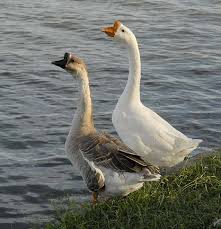A few days ago, we heard the sad news that the Abbey Road Studios, where The Beatles recorded most of their albums, was up for sale. Fortunately, the British Government made it a listed building and now EMI, the music company that owns the studios, says it's not for sale any more. According to British laws, listed buildings cannot be altered or changed, especially in the outside aspect.
Not only The Beatles produced their albums there, but also many more important musicians, rock bands and even orchestras: the Harry Potter films soundtrack was recorded there, for instance. But surely, it was the Abbey Road album by The Beatles that immortalised the studios. And the crosswalk in front of the studios,which is in the cover of the album, still draws tourists eager to take photos in this historical spot.
In this video, you can hear Sir George Martin, producer of most of the Beatles' albums, talking about the moment they decided to record Abbey Road, which would be their last album together.
This blog is meant for learners of English, especially secondary students. Please, add your comments in English!
Sunday, February 28, 2010
Sunday, February 21, 2010
Ways to express the future: Will and going to
Have a look at this presentation about the future tenses and then try doing these exercises:
Saturday, February 20, 2010
Friday, February 19, 2010
Wednesday, February 17, 2010
Why should we read?
I always remind my students that reading in English is really important to get a grasp of the language. Reading is one of the basic skills together with writing, listening and speaking. In this presentation by denbe01 on Photopeach there are many more reasons for reading. I hope you enjoy it!
Why I Like to Read on PhotoPeach
Why I Like to Read on PhotoPeach
Saturday, February 13, 2010
Happy New Chinese Year!
These days Chinese people all over the world are celebrating the new year, which is called the Year of the Tiger. These celebrations last for 15 days and consist of family reunions, socialising and amusements. On New Year's Eve they have a special family dinner in which they honour their ancestors. The last day of the celebrations is called Lantern Day because people carry lanterns in the streets to take part in a great parade in which young men make a dragon dance. This dragon is made of silk, paper and bamboo and stretches for several meters. The bobbing and weaving of the dragon is an impressive sight.
The Chinese New year is the second New Moon after the winter solstice, that's why the dates vary each year. The Chinese name the years after animals. There are 12 animal names:
Rat, Ox, Tiger, Hare, Dragon, Snake, Horse, Ram, Monkey, Rooster, Dog and Pig.
According to the Chinese horoscope, Tiger people are sensitive and capable of sympathy. If you want to know more about the Chinese animal zodiac go to the Chinese Culture Centre of San Francisco page
Image in Flickrcc: http://www.flickr.com/photos/66208256@N00/2263111390
Monday, February 8, 2010
The origin of St.Valentine´s Day
How much do you know about the origin of this holiday? Watch the video and answer the questions!
Sunday, February 7, 2010
Irregular plurals
Most nouns in English form the plural adding -s, but those ending in -ch, -sh, -s, -o add -es. Examples:
house - houses; match - matches; bush - bushes; bus - buses; potato - potatoes. But, as with all rules, there are exeptions: photo - photos; piano - pianos, and others. Nouns ending in -y change this to -ies: baby- babies.
Those could be considered regular plurals, but there are many words in English that don't follow these rules at all. These are the irregular plurals. We can put them in different groups according to some similarities:
house - houses; match - matches; bush - bushes; bus - buses; potato - potatoes. But, as with all rules, there are exeptions: photo - photos; piano - pianos, and others. Nouns ending in -y change this to -ies: baby- babies.
 | ||
| Matches |
- Change of the radical vowel: man- men; woman - women; foot- feet; tooth - teeth; goose - geese...
- Change of the word: person - people
- Adding a different ending: child - children; mouse - mice; louse -lice...
- No change: deer - deer; sheep - sheep...
- Changing the final -f or -fe to -ves: knife - knives; half - halves... There are many exeptions and we will see this point more detailed in another blog entry.
- Nouns coming from Latin or Greek: cactus - cacti; crisis - crises; phenomenon- phenomena; bacterium - bacteria...
- Other foreign words keep the plural in the original language: tableau - tableaux.
These are just some examples, but there are many more irregular plurals. You can practise them by doing these exercises.
 |
| One goose |
 |
| Two geese |
Subscribe to:
Comments (Atom)
